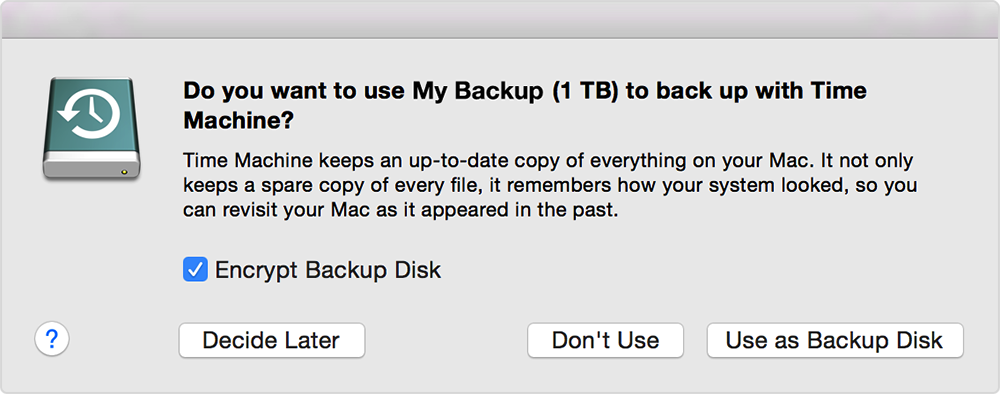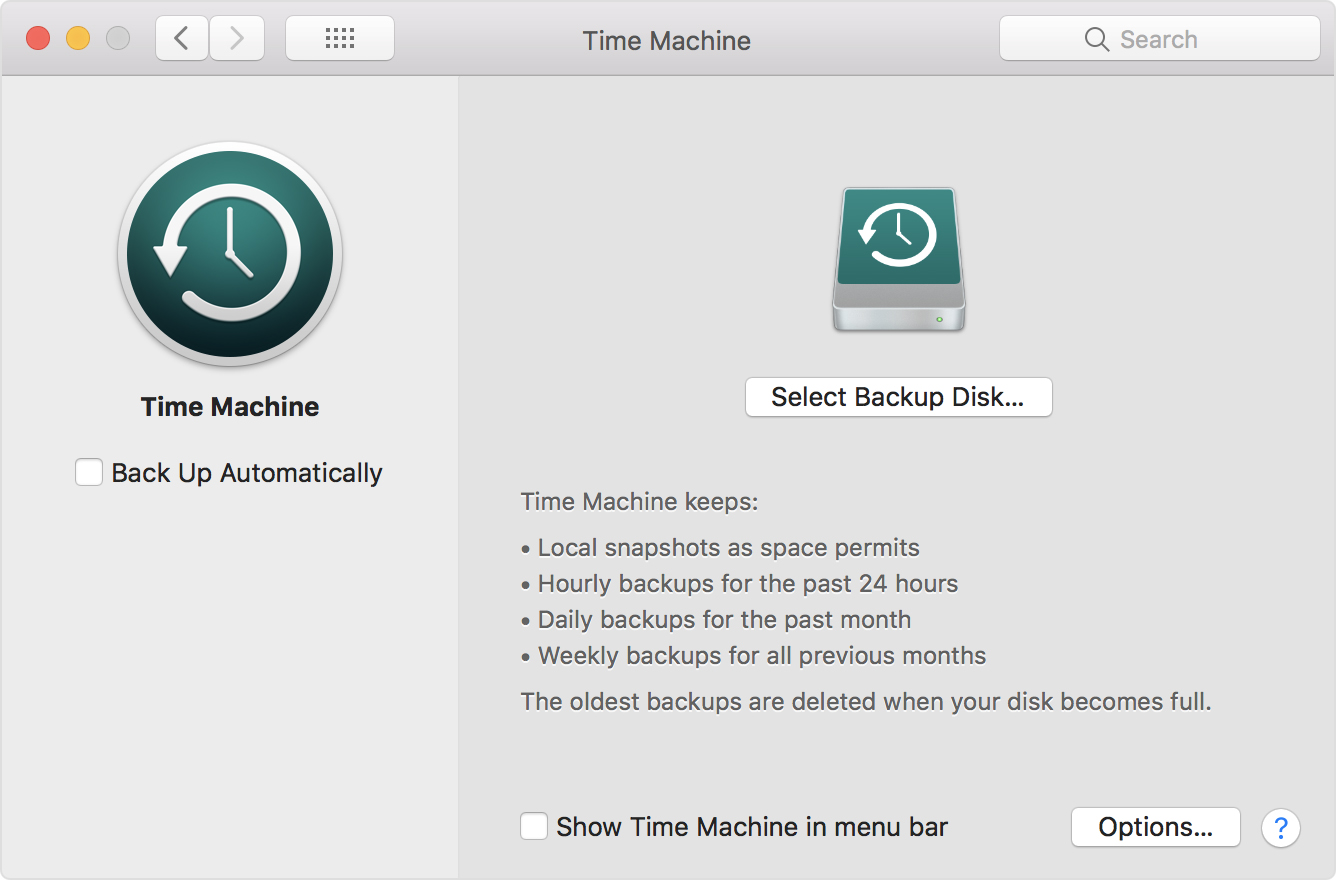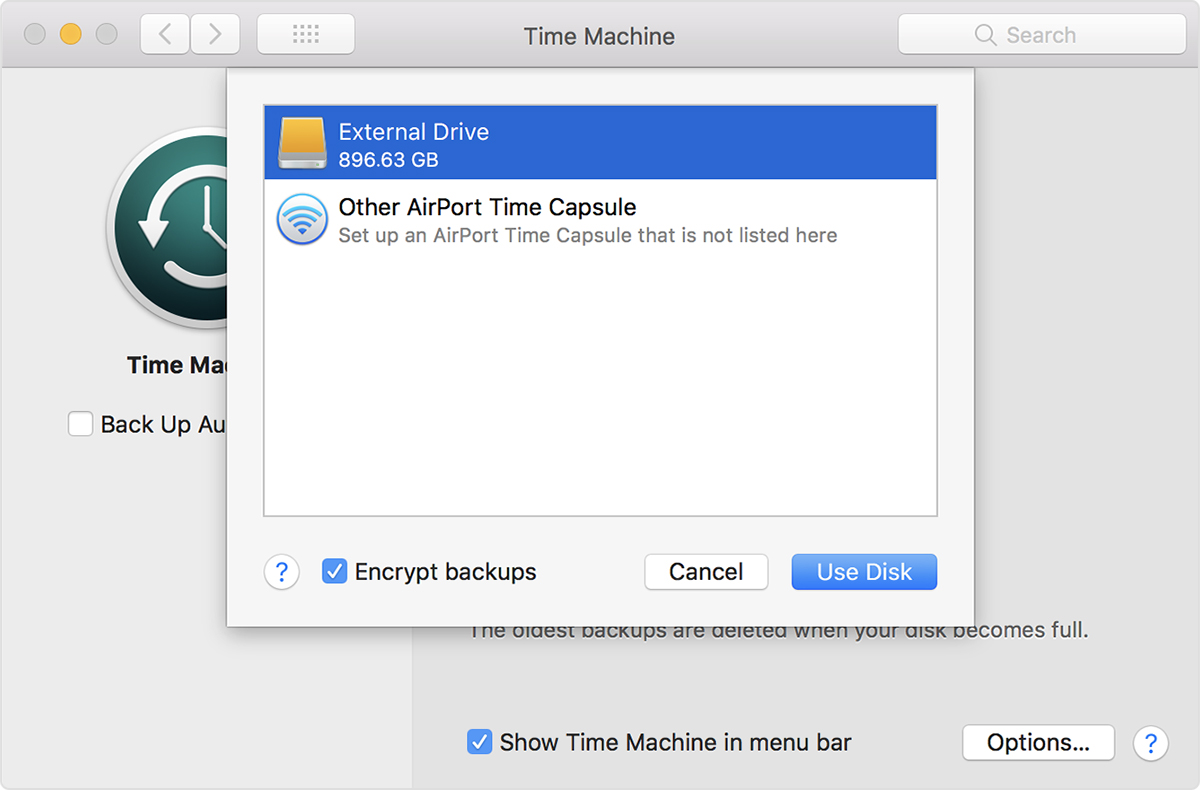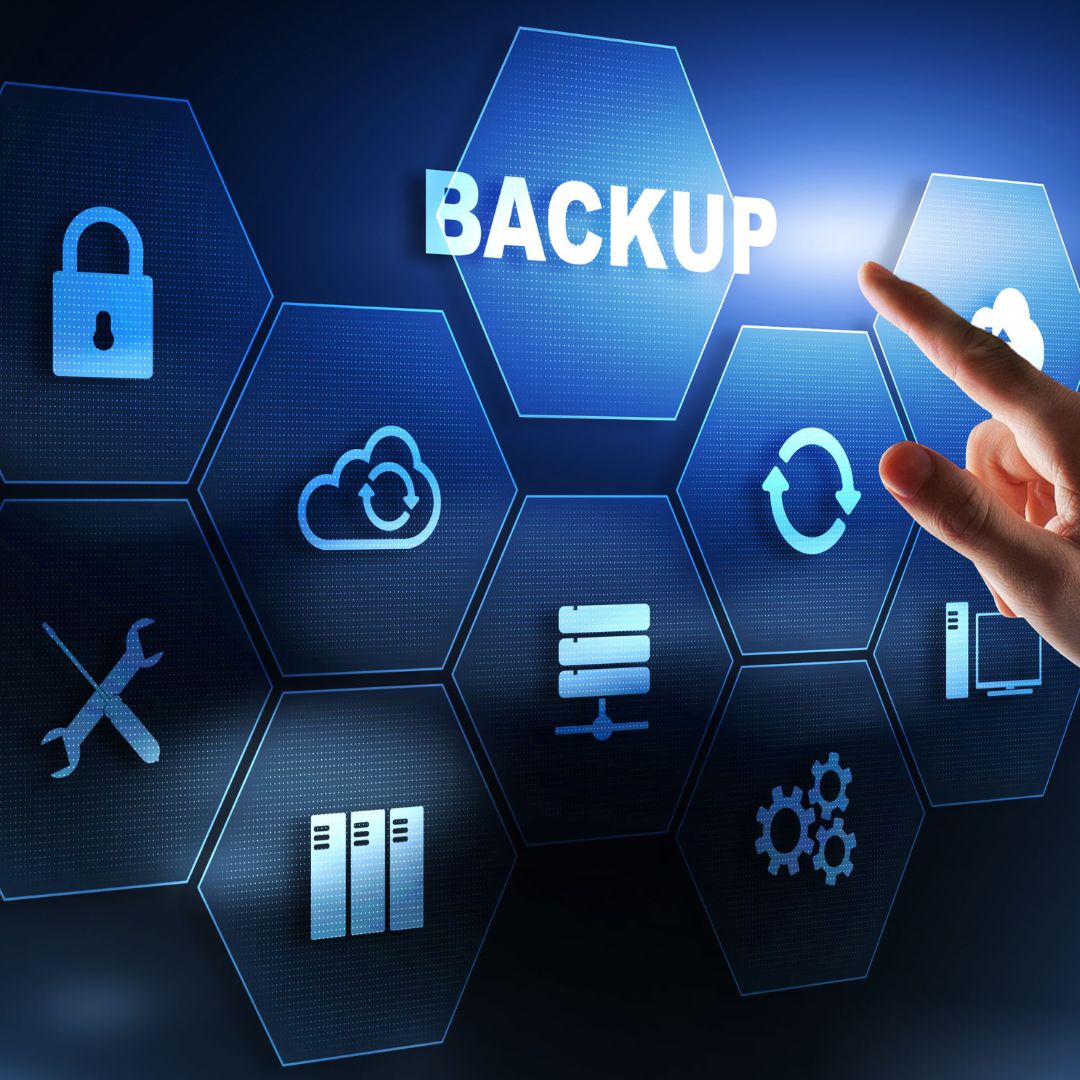Tech Stories 12 – Mac Transfer
Paula R.
…with 30 years experience of working with Apple, I still think the best way to transfer your computer to a new one is to use time machine. If you do not know what time machine is and or your back up is not done in the last 24-48 hrs please get know time machine today !
https://support.apple.com/en-us/HT201250
If you like to see more options about backups you can see here
https://www.softwarehow.com/time-machine-alternative/
in addition we supply are client with are own online backup solution
https://www.marbellamacsolutions.com/services/backup/
Back up your Mac with Time Machine
Learn how to create a backup of the files on your Mac.
You can use Time Machine, the built-in backup feature of your Mac, to automatically back up all of your files, including apps, music, photos, email, documents, and system files. When you have a backup, you can restore files from your backup if the original files are ever deleted from your Mac, or the hard disk (or SSD) in your Mac is erased or replaced.
Create a Time Machine backup
To create backups with Time Machine, all you need is an external storage device. After you connect the device and select it as your backup disk, Time Machine automatically makes hourly backups for the past 24 hours, daily backups for the past month, and weekly backups for all previous months. The oldest backups are deleted when your backup disk is full.
Connect an external storage device
Connect one of the following external storage devices, sold separately. Learn more about backup disks that you can use with Time Machine.
- External drive connected to your Mac, such as a USB, Thunderbolt, or FireWire drive
- External drive connected to an AirPort Extreme Base Station (802.11ac model) or AirPort Time Capsule
- AirPort Time Capsule
- Mac shared as a Time Machine backup destination
- Network-attached storage (NAS) device that supports Time Machine over SMB
Select your storage device as the backup disk
When you connect an external drive directly to your Mac, you might be asked if you want to use the drive to back up with Time Machine. Select Encrypt Backup Disk (recommended), then click Use as Backup Disk.
An encrypted backup is accessible only to users with the password. Learn more about keeping your backup disk secure.

If Time Machine doesn’t ask to use your drive, follow these steps to add it manually:
- Open Time Machine preferences from the Time Machine
 menu in the menu bar. Or choose Apple () menu > System Preferences, then click Time Machine.
menu in the menu bar. Or choose Apple () menu > System Preferences, then click Time Machine. - Click Select Backup Disk (or Select Disk, or Add or Remove Backup Disk):

- Select your external drive from the list of available disks. Then select ”Encrypt backups” (recommended) and click Use Disk:

If the disk you selected isn’t formatted as required by Time Machine, you’re prompted to erase the disk first. Click Erase to proceed. This erases all information on the backup disk.
Enjoy the convenience of automatic backups
After you select a backup disk, Time Machine immediately begins making periodic backups—automatically and without further action by you. The first backup may take a long time, depending on how many files you have, but you can continue using your Mac while a backup is underway. Time Machine backs up only the files that changed since the previous backup, so future backups will be faster.

To start a backup manually, choose Back Up Now from the Time Machine ![]() menu in the menu bar. Use the same menu to check the status of a backup or skip a backup in progress.
menu in the menu bar. Use the same menu to check the status of a backup or skip a backup in progress.
If you need any help, send us a email to schedule an appointment…












